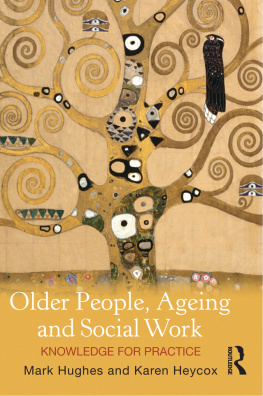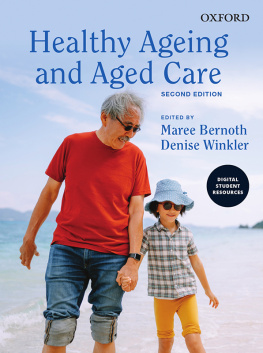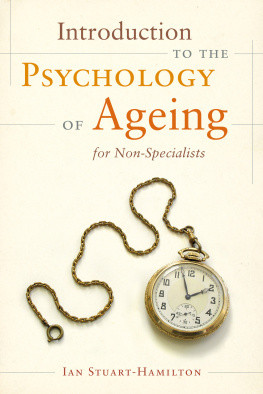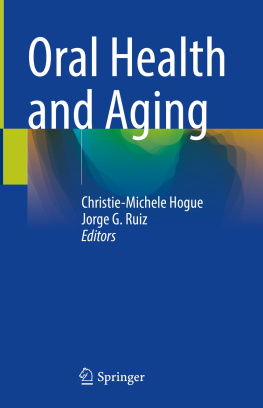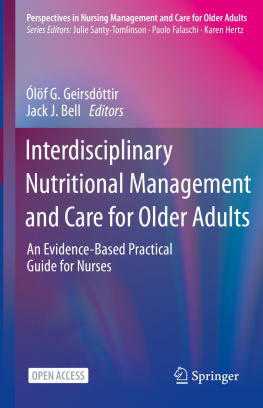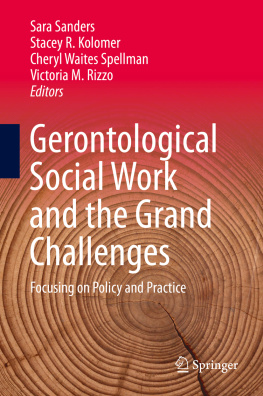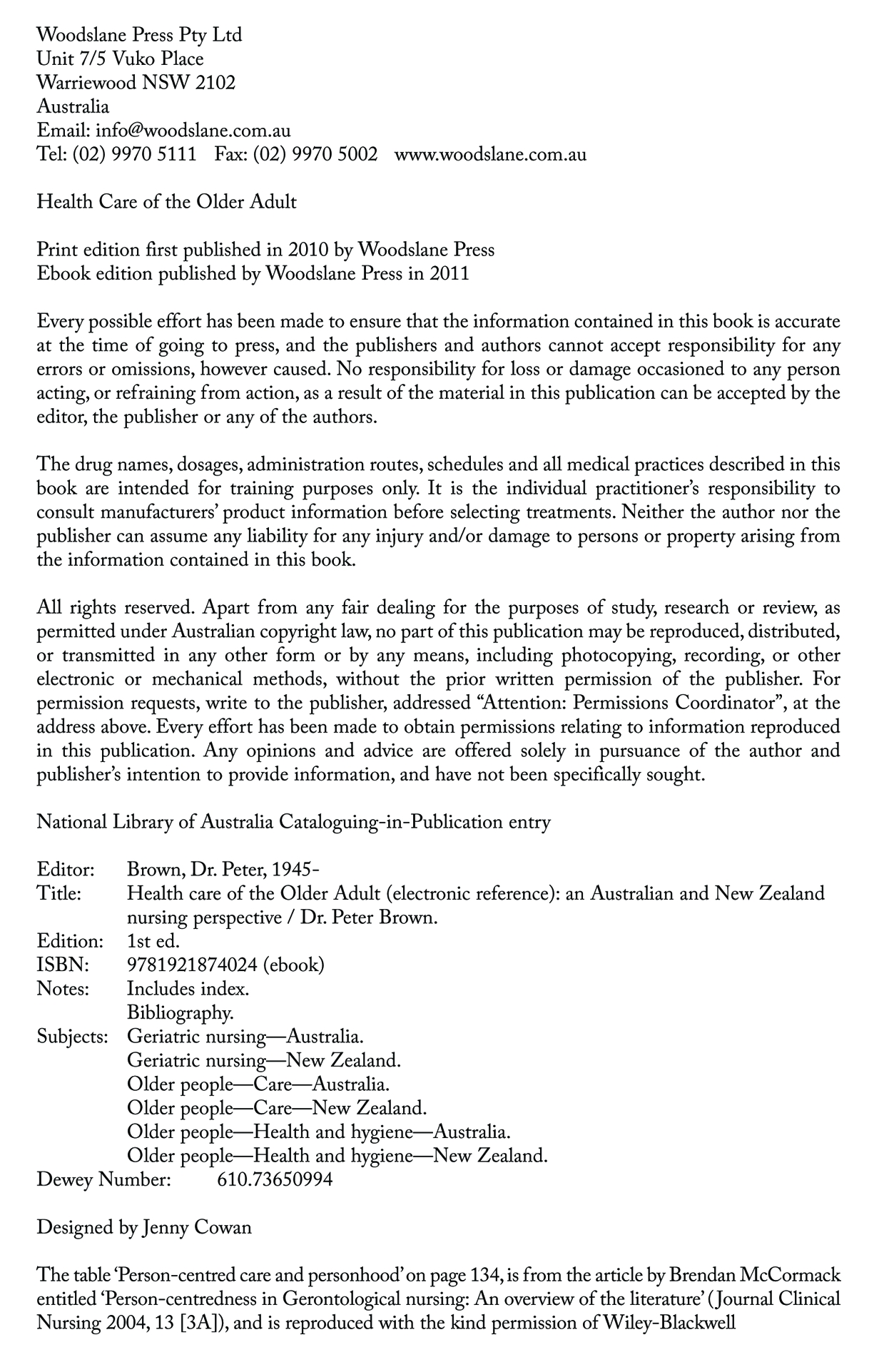About the Editor
The Editor, Dr. Peter Brown, has worked in various Universities in NSW over a 25 year span as a Lecturer, Senior Lecturer, and Assistant Head of School. Specialty content areas and interests include; mental health problems in old age, aged care, and mental health, having lectured in these specialties at undergraduate and post-graduate level. He has also lectured a multidisciplinary post-graduate course at the NSW Institute of Psychiatry. He has edited two textbooks on aged care and presented numerous conference papers, both nationally and internationally. Peter is a member of the Royal College of Nursing, Australia Health and Wellness in Ageing Faculty. He is currently Associate Professor in Clinical Practice, School of Health Sciences, Charles Darwin University. Peters PhD focussed on older husbands experience of providing care for wives with dementia at home.
Chapter 1
Ageing and care of the older adult
Dr. Peter Brown, RN, DNE, BHons, MA, PhD, MRCNA, ACMHN Associate Professor, School of Health Sciences, Charles Darwin University (CDU)
Objectives:
This chapter will enable the reader to:
1)develop an understanding of ageing and peoples experience of ageing in our society;
2)identify myths of ageing which are to be found in our society;
3)trace the development of interest in ageing from early times to the present;
4)examine the demographic profile of older adults in Australia and New Zealand (non-Indigenous and Indigenous);
5)develop an understanding of aged care provision in Australia and New Zealand; and
6)examine some of the important issues currently facing aged care and aged care nursing in Australia and New Zealand today.
Introduction
In this book you will examine the experiences of older adults as they age. But what is ageing? Ageing is defined in various ways and you might like to examine a dictionary definition (e.g. Macquarie, Oxford, Websters) and a medical dictionary definition, and compare the definitions from these sources with one from a textbook on ageing or gerontological nursing, noting any contrasting ideas. In this chapter we will examine whether ageing is related to a particular chronological age or stage of life or more to the individuals level of functioning: What happens to body systems as we age? What is the level of interest in ageing in our society? Are we an ageing society? What health problems do older adults experience, and what is the nurses role in relation to these? People aged 65 years and over are referred to by various descriptors; elderly, aged, older people and seniors to name a few. Currently, the most politically correct term is older adults.
What is old age?
Life stages such as childhood and adulthood are socially constructed and are not fixed (Phillipson, 2001). These have been expanded and contracted in length and new ones have emerged in response to social changes and increasing knowledge (Degnen, 2006). We commonly identify old age as beginning at age 65 but this is not a recent invention. It reflects primarily the decision by various countries (e.g. European and the US) in the first half of the twentieth century to use this age to create their retirement or pension systems and determine eligibility for these benefits. Australia and New Zealand have followed this policy for many years as well (adult-life stages, http://family.jrank.org/pages/44/Adulthood-Life-Stages.html). Many authors feel that it is highly unsatisfactory and even inappropriate to fix mandatory retirement at 65 years of age, and more recently the Australian Government has encouraged older people to remain at work for longer (Australian Institute of Health and Welfare, 2007), introducing the provision of a bonus for each year past retirement age that the person stays in the workforce (the Australian Centre on Ageing).
In Chapter 4 biological changes associated with ageing are examined, but old age covers a greater range of years (65 to over 100) than any other age group and there are an increasing number of people living to over 100. It has been suggested, therefore, that we should divide old age up into at least four (or even more) groups: for example, young-old (65 to 74 years of age), middle-old (75 to 84), old-old (more than 85) and centenarians (over 100) (Meiner and Lueckenotte, 2006). Interestingly, there were 3,154 centenarians in Australia at the time of the 2006 Census and this number is expected to increase to 12,000 by the year 2020 (Richmond, 2008).
Where did our interest in ageing begin?
The first professions to develop education and practice orientations in relation to ageing were medicine, nursing, psychology and social work. Today, interest in ageing comes from a much broader representation of professions (Grabinski, 2007). Although somewhat dated now, Crandall (1991) has provided a very useful overview of the history of older adults in both preliterate and literate societies. According to Crandall, in preliterate societies older people were either well cared for or were treated poorly. Positive treatment was related to the special skills and information they possessed, and whether they performed a religious function. On the other hand, negative treatment was related to economic necessity (e.g. where the group was constantly on the move and didnt have time to provide for the sick, older members etc.), less societal complexity (e.g. lacking infrastructure to manage elderly, sick etc.) and political roles (e.g. their place in society was taken over by others, often younger members).
Look at the following propositions about older people and compare them with what you know about older adults in our society. In what ways are the characteristics similar/different?
- they are a minority group
- women significantly outnumber men and there is a high proportion of widows
- they fill age-specific roles (e.g. retirees, volunteers, carers)
- they leave the economic workforce and take on other roles
- a few continue in political, judicial, business and civic roles
- they are looked after by their adult children
- they seek methods to prolong life
Socio-demographics of old age
Although a minority group still, the number of older adults will continue to grow as a proportion of the total Australian and New Zealander populations. Similarly, when examining OECD countries (e.g. UK, Sweden etc.), we find that older adults comprise a significant and growing proportion of their populations. Indeed many of these countries have a higher proportion of older adults (Parliament of Australia, 2006) than Australia and New Zealand (AIHW, 2007). We will see a similar trend in Australia and New Zealand over time.
In Australia and New Zealand there are more widows than widowers (AIHW, 2007). However, unlike earlier societies it is probably not true that men in our society leave the economic workforce and enter advisory or supervisory roles in our society, although some will do this. In earlier times older adults were more directly looked after by adult children but in our own society it is still not common to have more than one or two generations living in the same household. Adult children in our society, however, provide a lot of indirect support by telephoning on a regular basis, visiting and providing hospitality for older mothers and fathers.
Many writers have argued that until more recent years there has been little interest in older people and ageing. Consider what this was related to.
Perhaps you identified one or more of the following explanations.


